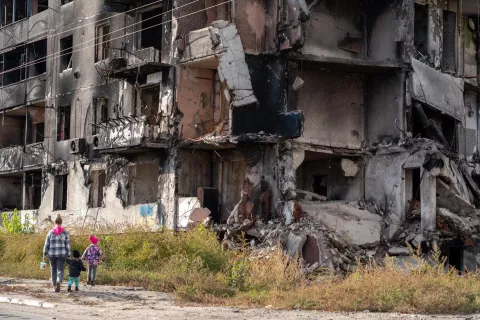Marching with mobiles in Guinea
Young people speak out about the protection of children’s rights in crisis and conflict.

- Available in:
- English
- 中文
The 2016 Day of the African Child is commemorated on 16 June. Ahead of this year’s event, Fode joins nearly 86,000 youths across Africa using U-report to share their voices and opinions on the protection of children’s rights in crisis and conflict.
CONAKRY, Guinea, 16 June 2016 – Fode, a 23-year-old corporate business management student in Guinea, has strong opinions. He has concerns and ideas about his future and the future of Africa. As a way to voice his opinions, Fode is one of nearly 86,000 U-reporters across Africa who participated in the first ever pan-African U-report poll ahead of the Day of the African Child commemoration on 16 June.

The Day of the African Child is celebrated in recognition of June 16, 1976, when thousands of black school children in Soweto, South Africa, took to the streets to protest the inferior quality of their education and to demand their right to be taught in their own language. Over the course of that day and the two weeks of protest that followed, more than 100 people were killed and more than 1,000 were injured.
Today, the June 16 commemoration also provides an opportunity to reflect on progress towards health, education, equality and protection for all the continent’s children. This year’s theme is ‘Conflict and Crisis in Africa: Protecting all children’s rights.’
Through U-report – an innovative SMS-based polling and communication tool – youth from nine African countries were polled on what they think of African leaders’ efforts to end conflicts and how conflicts can be solved.
“If the leaders of Africa [want] to end conflicts they must build strong institutions,” says Fode. “Respect the principles of democracy through the establishment of rule of law and promote good governance, and conflicts will not have fertile soil.”
A new tool for freedom of expression
Like their counterparts around the world, youth in Guinea are passionate about a wide range of issues that affect them, including conflict, employment, better access to health – especially in the wake of the recent Ebola outbreak – and education. Before U-Report was launched in Guinea, youth would take to the streets to get their voices heard. Now they have another option.
“U-Report is helping young people in Guinea and neighboring countries to express themselves and interact with politicians and policy makers,” Fode tells UNICEF.
With better internet connections and improved power grids, more people than ever before have internet access in Guinea. Part of Fode’s motivation to use U-Report is his deep interest in technology, combined with his passion for youth participation.

“I have always been animated by a spirit of participation in matters concerning me. That's why I always supported youth leadership. I am actively involved in socio-political development but also [the] health of my community,” says Fode.
Sharing poll results for progress
The findings of the survey Fode took part in offer valuable insights into the hearts and minds of African youths. For instance, two out of three respondents believe that African leaders are not doing enough to stop conflict and crises in Africa. When asked why Africa is more prone to conflict than other regions, 56 per cent of respondents believe that ‘politicians fighting for power’ is the main reason. Respondents also offered their opinions on how leaders can stop conflicts – from strengthening the economy, to investing in education.
This year, the Day of the African Child will be commemorated by African Union Member States and partners in a refugee camp in the Gambella region of Ethiopia. These polling results will be presented to African leaders from all over the continent.
When UNICEF asks Fode how, if given the chance, he would advise African leaders to end conflicts, he replies with conviction: “Invest in education and establish democracies which are adapted to African realities and culture. But there must also be a will to end conflicts.”



